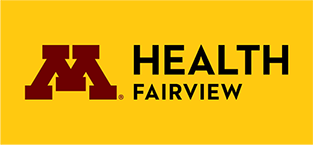|
Unravel Visual Consequences in Concussions and Other Brain InjuriesTHIS IS A PRIVATE COURSE FOR FAIRVIEW REHAB SERVICES THERAPISTS ONLY. NOT OPEN TO OTHER ORGANIZATIONS. Date: Saturday, May 4th, 2024
Intended audience: OT, COTA, PT, PTA
Check in time: 7:30-8 am
Class time: 8-4:30 pm
Course level: Intermediate
Contact hours: 7 contact hours (Pending MN Approval, subject to change)
PESI to provide continuing education credits
Location: Wilf Auditorium
2450 Riverside Avenue, Minneapolis, MN 55454
Held in Wilf Auditorium in Children's Masonic Hospital
Fairview rehabilitation Services in collaboration with PESI
Course intended to be completed in full. If you need to arrive late or leave early the CE department must be notified before course takes place for contact hours to be adjusted. Occupational Therapists & Occupational Therapy Assistants: PESI, Inc. is an AOTA Approved Provider of continuing education. Provider #: 3322. This activity has been submitted to AOTA for review. Approval pending. Physical Therapists & Physical Therapist Assistants: This activity consists of 7.0 clock hours of instruction that is applicable for physical therapists. This certificate is proof of your attendance. Please retain it in your records or use for submission as proof of completion when required. Cancellation Policy: Cancellation Fee will apply Speaker: Robert Constantine, OTR/L is an occupational therapist with over 25 years of experience in the fields of visual and neurological rehabilitation. Mr. Constantine is employed by the Pearl Nelson Child Development Center, where he focuses on the treatment of eye movement disorders in neurotypical and special needs children as well as adult stroke, TBI and concussion survivors. Mr. Constantine’s passion leads him to intensive studying of the visual system and continuous searches for new, evidence-based interventions to improve patient outcomes. Robert has had training from the Neuro-Optometric Rehabilitation Association, a unique interdisciplinary organization that brings together the tools of optometry, occupational and physical therapy to improve outcomes for patients with neurological diagnoses. He was previously the only occupational therapist to be a member of the High-Performance Vision Associates, an elite group of sports vision optometrists. As such, Mr. Constantine has participated in sports vision screenings at IMG Academy, Hendricks Motorsports, and on the LPGA tour. He has also developed and marketed drag-racing specific glasses that have been successful in NHRA Sportsman drag racing, as well as having worked with elite NHRA racers, golfers, and sporting clays champions. Speaker Disclosures: Financial: Robert Constantine has employment relationships with CIAO Seminars and Pearl Nelson Child Development Center. He receives a speaking honorarium and recording royalties from PESI, Inc. He has no relevant financial relationships with ineligible organizations. Non-financial: Robert Constantine has no relevant non-financial relationships. Course summary: Brain injuries present a myriad of challenges for both patients and therapists. Symptoms range from debilitating dizziness and blurred vision to persistent headaches. Despite your best efforts and adherence to time-tested methods targeting the vestibular aspects, many patients continue to grapple with daily challenges. It’s frustrating, isn’t it? Feeling like a vital piece of the treatment puzzle is just out of reach? It’s time to consider a groundbreaking perspective: the profound role of the visual system in post-concussion symptoms. Dive deep into the often-overlooked influence of the visual system in concussion management. With Robert Constantine, OTR/L, leverage over two decades of clinical expertise to swiftly pinpoint and remedy common post-injury complications: • Persistent headaches • Sensitivity to light • Issues with balance • Blurred and double vision The importance of comprehensive concussion management has gained massive media attention. Yet, many regions face a stark shortage of specialists. This seminar isn’t just about gaining knowledge—it’s about positioning you as the beacon of hope for those battling the after-effects of concussions and mild TBIs. Empower yourself with groundbreaking strategies—from a revolutionary vision trick that offers instant relief to a range of DIY tools. Let this seminar be the catalyst that transforms your approach for a symptom-free horizon for your patients. Objectives 1. Identify the anatomical structures impacted in a concussion and potential impacts on daily activities. 2. Analyze the essential role of interdisciplinary collaboration in rehabilitating functional outcomes post-concussion. 3. Determine the prevalence and functional implications of visual disturbances following a concussion. 4. Choose assessment techniques specific to ocular motor focusing challenges, near-vision focusing challenges, and their functional impact. 5. Choose interventions to address pathological eye movements and enhance patients’ functional vision in daily tasks. 6. Evaluate evidence-based treatment strategies for use in improving ocular motor skills and their impact on everyday functionality.
Course Time 8:00-4:30PM (Lunch Break 11:50AM-1:00PM) There will be two 15-min breaks (mid-morning & mid-afternoon). Outline: Pathology & Pathways of the Brain Anatomy from cornea to cortex “What” vs “Where” pathways post-concussion syndrome Mild TBI Female concussion Associated visual problems
Integrate Systems for Faster Recovery Ocular motor, balance, and proprioceptive Accommodative disorders Central and peripheral visual pathways Convergence problems Saccade inaccuracies
Simple Tricks and Tools that Improve Symptoms What you need to know about glasses DIY tools Prism Lenses Brock string Magic Scotch® Tape
Assessment Strategies to Quickly Identify Visual Problems Two questions for objective measurement of concussion syndrome Ocular Motor assessment Assessing near vision focusing Standardized symptom assessments
Address Common Symptoms and Concerns Headaches Dizziness Blurred and double vision Motion sensitivity Light sensitivity Tolerance of computer screens
Quick Tips for Documentation Success Saccades, tracking/pursuits, and convergence Cheat sheet for ocular motor skills and common eye pathologies When to refer on? ODD vs. MD vs VT Tips for connecting with other concussion professionals in your community
REGISTER FOR THIS COURSE
|

